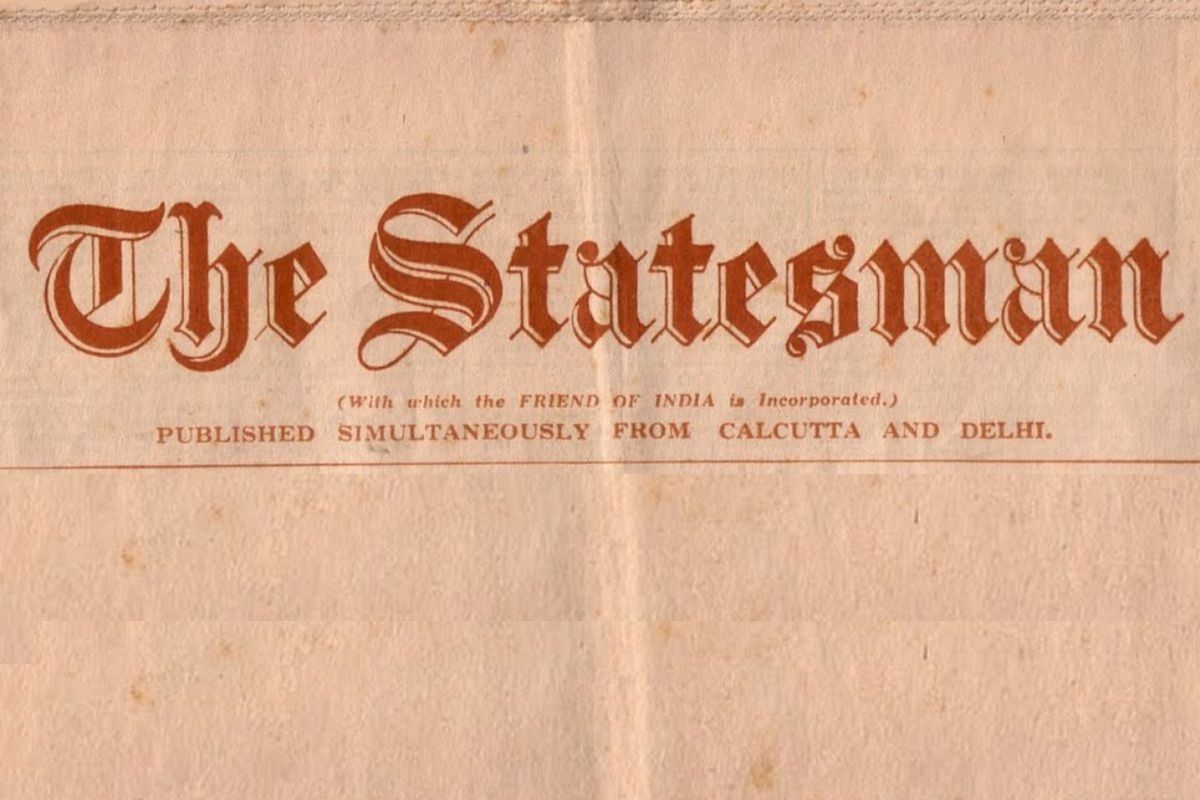Leading women personalities on what it takes to be a woman!
On International Women's Day, The Statesman talked to esteemed women personalities from various fields on what it takes to be a woman in our country and what empowers them.
On this day a century ago, these were some of the news items The Statesman readers got to read about India and the world.

OCCASIONAL NOTE
It is characteristic of the Indian Government’s treatment of almost every enterprise they touch that the Madras offer of a unit of forty nurses – 24 completely, and the rest partially, trained – should be made public only when the Afghan war has finished. Probably Calcutta and Bombay could have supplied units each twice the strength of the proposed Madras unit but no invitation came at the critical moment. Last June there was a cholera epidemic among the troops on the North-West Frontier. During twenty days, according to official figures published some weeks after the epidemic was over, there were 1,663 cases and 566 deaths. During the first three months of the Afghan war there were admittedly nearly 8,000 evacuations of troops to hospital. Yet the word disease was excluded from every official communiqué and no invitation for help was allowed to reach the public until the stories of Indian hospital scandals began to be whispered in London. The first appeal for nurses was made there and not in India. Truly the Indian Government learn nothing and remember nothing. It is, however, intolerable that the troops, British and Indian, should suffer for the blunders of a little coterie of individuals who, not content with failing egregiously in the performance of their own task, deny others the right and privilege of doing theirs.
Advertisement
LAND DISPUTE
Advertisement
Mr. M. Smither, District Judge of Alipore, delivered judgment in the appeal preferred by the Kamarhatty Mills Ld., against Nahari Nath Seth and others of Burrabazar from the decision of Rai Girish Chandra Sen Bahadur, Subordinate Judge of Alipore. The suit related to a strip of land adjoining the road which is an approach to the mills from the public municipal road. The Seths, who were the plaintiffs, claimed the land on the ground that it was not included in the lease which they had granted to the mills company, and they sued for the declaration of their title and recovery of possession. The defendant company contended that the land as well as the road on the south of it was comprised in the lease which they had obtained from the Seths, that they had been in possession therefore all along and that the plaintiff’s suit was groundless. The sub-Judge’s decision was reversed and the plaintiffs’ suit was dismissed with costs.
RAILWAY STATION TRAGEDY
POONA, AUG 13
A tragic occurrence is reported from Munmad Station on the Great Indian Peninsular Railway in which Mr. Edmund Jordon Bird, Assistant Station Master lost his life. Mr. Bird had been lying lie with typhus, and early on Monday morning he walked out of his house while in a delirium and, crossing the railway lines, was knocked down and killed by passing goods train. The deceased who was a married man, leaves a widow and two children. Mr. Bird was only 32 years of age and was greatly liked by all who knew him on the railway, on which he had been working for the past 17 years. The deceased was accorded a military funeral by the Indian Defence Force.
DEMOBILISATION DELAYS
RANGOON, AUG 13
The Burma Chamber of Commerce has wired to the Government of India that instead of officers and men being demobilised they are being recalled to the colours, thereby causing great inconvenience and loss to the firms concerned, and that the time has now come when the military authorities are expected to do their own duties without the assistance of civilians, all of whom should now be demobilised. In a previous letter on the same subject the Chamber stated that their information was that many men were being needlessly retained who could be readily relieved without in any way affecting the military situation and with considerable advantage to the financial resources of the Government, and that consequently the feeling was so strong in commercial circles that some firms have stopped all salaries and gratuities to men serving under the Army Department.
THIRTEEN YEAR OLD HUSBAND
Yesterday Mr. Das Gupta had before him the consideration of the notice which an up-country woman named Gangoo, aged 20, had obtained against her thirteen year old husband, Hari, calling upon him to show cause why he should not maintain her. Complainant’s story was that she was married to her husband about ten years ago – when he was three years of age. Since then, she had been living with him in Calcutta in his father’s house. Lately, she had been compelled to leave the house and her husband was refusing to maintain her. When the matter was called complainant was reported absent and the Magistrate discharged the rule with the remark that the defendant was a minor dependent on his father.
Advertisement